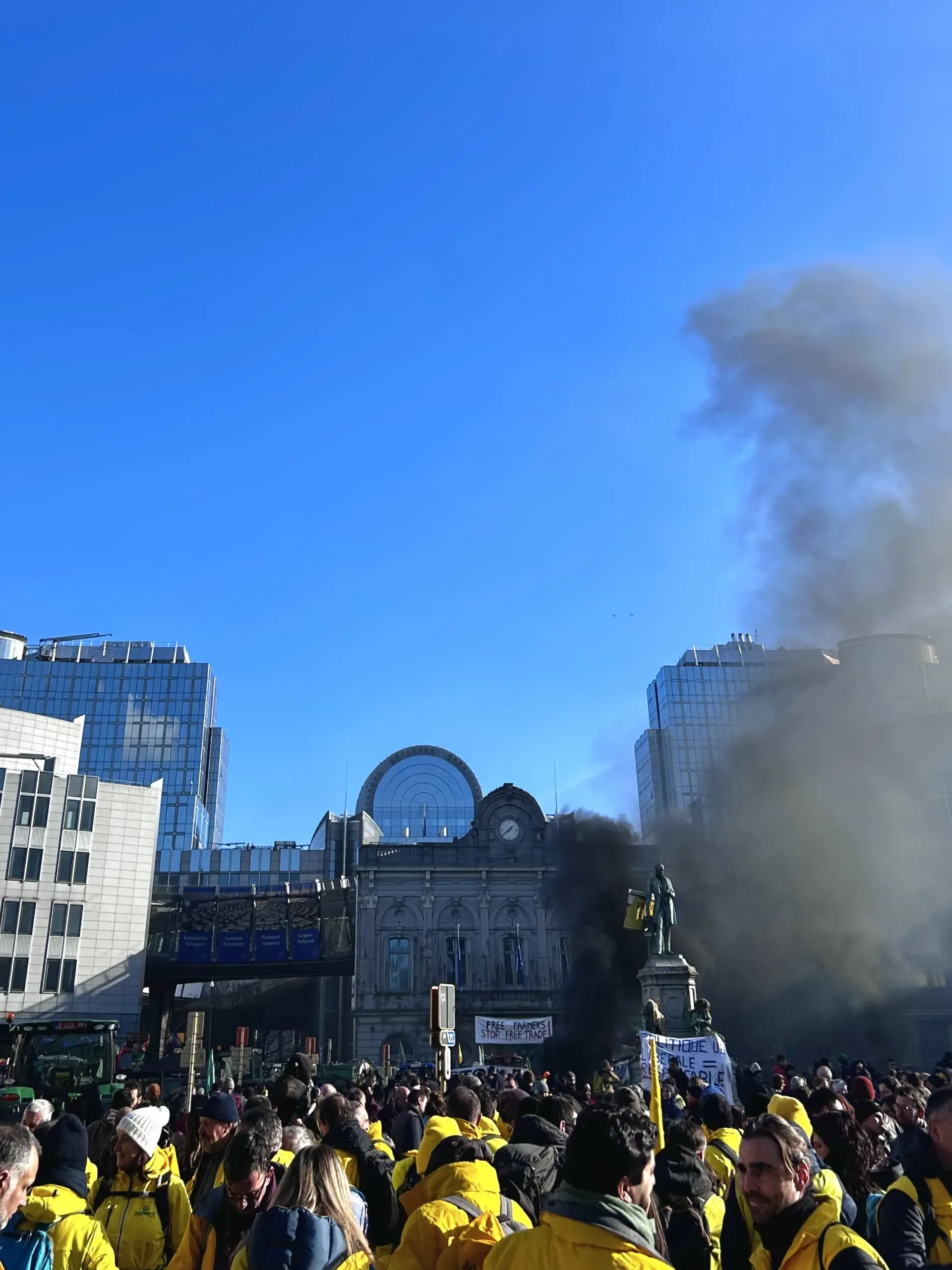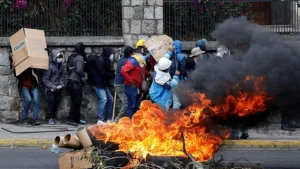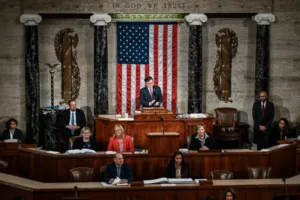On February 1, columns of tractors rumbled through the streets of Brussels as farmers from all across the European Union converged on the European Quarter. The spectacle, comprising around 1,300 thousand tractors, unfolded simultaneously with a crucial meeting of EU member state leaders in the Belgian capital.

The protests, a manifestation of a broader wave of farmer discontent sweeping through France and other EU nations, center around grievances such as perceived “unfair competition from abroad, plans to cut subsidies, and planned EU regulations.”
What do the protesters want?
Facing rising energy and fertilizer costs attributed to the conflict between Russia and Ukraine, farmers staged a demonstration outside the European Parliament in Luxembourg Square. This protest was further fueled by heightened pressure from cheaper agricultural imports. Climate change-induced challenges, including more frequent droughts, floods, and fires devastating crops, added urgency to their demands.
One of the key demands includes a reevaluation of the EU-Mercosur agreement. Furthermore, farmers are demanding equivalent import controls for Ukrainian products, aligning them with the standards applied to European agricultural products. Additionally, they seek the streamlining of bureaucratic processes related to environmental and agricultural laws.
Over the last two years, farmers all around Europe, have faced a culmination of challenges that have reached a critical point. Unprecedented droughts, fires, and floods attributed to climate change have wreaked havoc on crops. The economic impact of the COVID-19 pandemic has been significant, and Russia’s war in Ukraine has led to soaring energy prices. Additionally, runaway inflation has outpaced the growth of farm produce prices.
In terms of tangible financial impact, European Commission Vice President Maroš Šefčovič noted a substantial decline in the value of cereal production, plummeting by 30% in the past year—from 80 billion euros to less than 60 billion euros. This stark reality underscores the diminishing incomes for farmers, prompting a need for reflection and urgent attention to address the challenges at hand.
Farmers and the police clashing
The protests in Brussels took a contentious turn as clashes between protesters and police unfolded at Place Luxembourg. Chanting “If you love the Earth, support those who manage it,” and “No farmers, no food” protests threw eggs at the parliament building, leading to the deployment of tear gas and water hoses. Fires were ignited, and a statue in front of the European Parliament was toppled. A farmer attempting to cut down a tree on the parliament’s steps was thwarted by water cannons.

While agriculture is not formally on the agenda for Thursday’s EU leaders’ summit, there was speculation that concerned governments may raise the issue informally amid fears of the protests spreading. EU summit was concluded with the decision to grant Ukraine a four-year financial aid package of €50 billion after Hungarian Prime Minister Viktor Orbán agreed to lift his veto that was previously single-handedly blocking the release of money for Ukraine.
What has been the EU response ?
In response to the unrest, The European Union announced that tariff-free access for poultry, eggs, and sugar from Ukraine would be limited to average import volumes in 2022 and 2023. The French government committed to continuing concessions for farmers following two weeks of protests.
Luxembourg Prime Minister Luc Frieden commented on the situation, expressing concerns about excessive regulation: “Sometimes I have the feeling that we over-regulate. Today it’s the farmers; tomorrow it can be others. That’s why I also want to discuss this in Luxembourg and reduce bureaucracy. People want to work and not spend their day filling in forms.”
Additionally, The European Commission allowed governments to decide on their own whether to restrict food imports from Ukraine. Rules for freer land use were also adopted, and the implementation of trade agreements with third-world countries was slowed down. Thus, some of the purposes of the protests have been satisfied.
Photo: Flemish farmers take their tractors to the city center of Brussels, to protest against proposed new rules to reduce nitrogen emissions, on Friday 03 March 2023. Credit: Belga / James Arthur Gekiere







